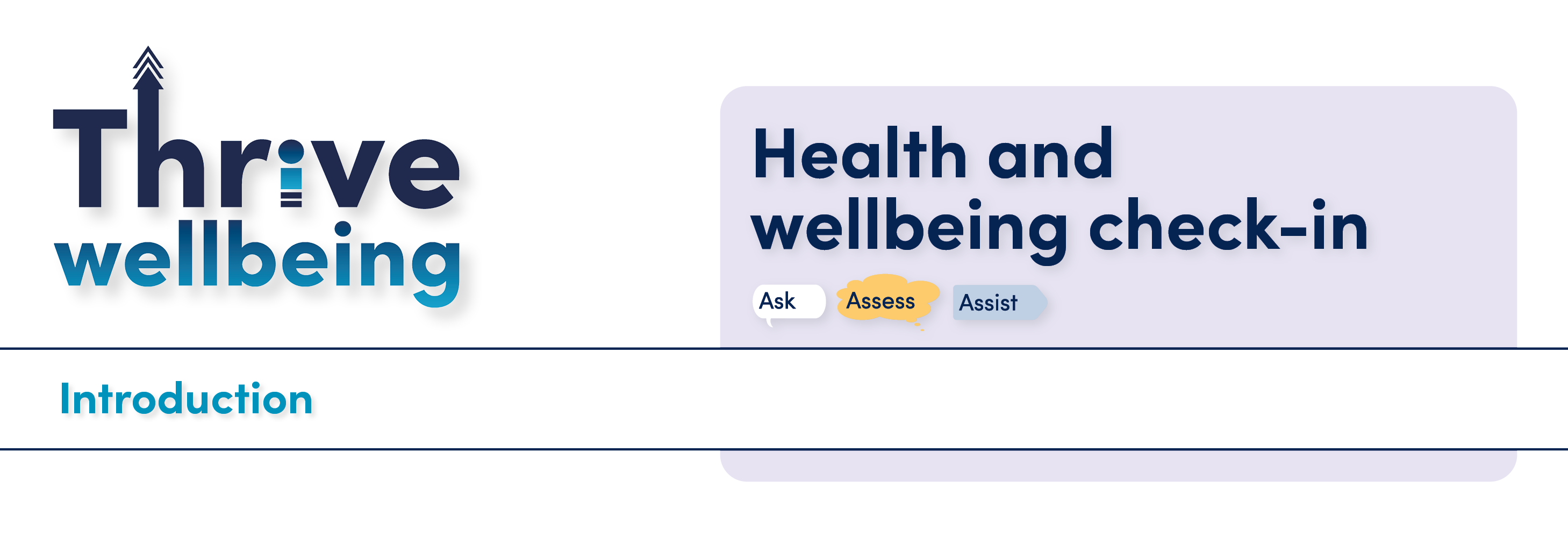
What are health and wellbeing check-ins?
A supportive, coaching-style one to one discussion focused on empowering individuals while also building individual and team resilience.
The aim is to embed these conversations across the system and create cultures where people feel heard and valued, and in which diversity is respected.
Check-in conversations should consider holistic needs, identify areas of support and include effective signposting.
There are three main purposes of check-in conversations:
To enable/empower all staff to have a confidential discussion about their wellbeing and what impacts on it
Think about how individuals and teams can nurture and protect their wellbeing
Identify areas of support and signpost effectively
Outputs from a health and wellbeing check-in conversation are to identify:
Areas of health and wellbeing that could be improved using a prevention or self-management approach. This includes support from line managers for workplace adjustments / flexible working
Areas needing additional, targeted support
Areas of organisational change where factors beyond the team or individual may be impacting on health and wellbeing
Wellbeing conversations are not:
Psychological interventions
Performance reviews
Intended to be documented for central monitoring purposes
A risk or mental health assessment
Who should be having these conversations?
In most cases, a health and wellbeing check-in conversation will be held by a line manager or supervisor but in some instances, colleagues may feel more comfortable talking to another trusted colleague about their wellbeing.
In this instance, Health and Wellbeing Champions or Mental Health First Aiders may be an alternative consideration.
When or where should they happen?
Wellbeing conversations could be opportunistic or be scheduled as part of 1:1s, shift handovers, annual work planning / appraisals etc.
They should take place in a safe, confidential space, both virtually and in person.
Recording health and wellbeing check-in conversations
Wellbeing conversations are confidential, they do not have to be recorded but it may be helpful for future check-ins.
Completing a Personal Health and Wellbeing Plan is one way to do this. Another option is to keep notes and ensure the file is password-protected. Anything that is recording belongs to the individual and should not be kept on their personal file.
Good signposting
Signposting is giving someone details of an organisation / service that might be able to address their needs.
It is normally left to the individual to contact the organisations and get the relevant support.
Resources
Why wellbeing conversations are important - video
NHS Leadership Academy Learning Hub
NHS England – Wellbeing conversations
Full list of support for signposting
Making reasonable adjustments to support staff with disabilities










